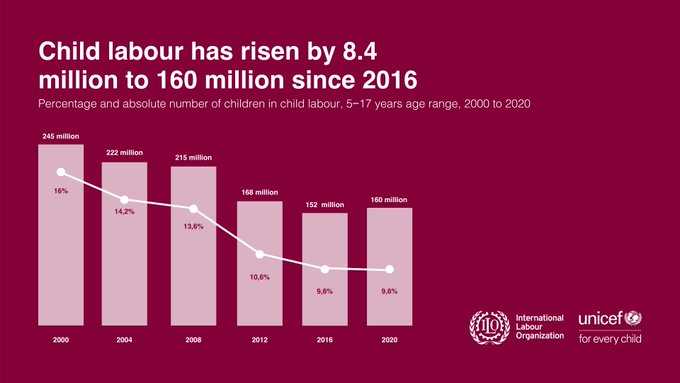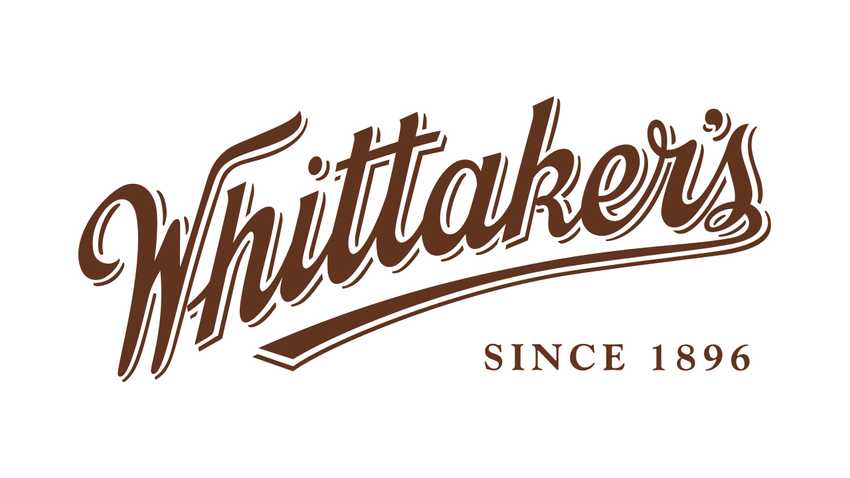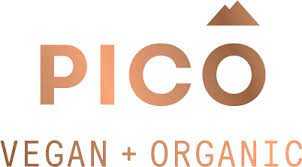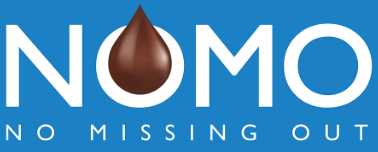Today is World Day Against Child Labour - and this year’s a bit of a sad one. The ILO is reporting an increase in the number of kids in work - for the first time in 20 years :-( And they’re expecting that to keep on getting worse until at least the end of next year. Thanks, Covid!

Most of those kids (70% of them) are working in agriculture. So here’s one thing you can do to help! Around 2 million kids are working on cocoa plantations. Most of them are working for their parents: there just isn’t much money in cocoa, so their parents need the children to work so the family can stay afloat. At Just Kai, we maintain a list of cocoa products made without child labour - and for all of them, the workers have been paid at least a bit more than the standard cocoa price as well.
Our cocoa guide has just gone through an extensive review. Here’s what’s in the new one. In short:
- we’ve restructured the list so your best options are listed first;
- we’ve added in six new brands, including Whittakers chocolate and Magnum ice cream;
- we’ve removed two brands that are no longer available.
A two-tier system

Any chocolate (or other cocoa product) that’s certified through Fairtrade, WFTO, Rainforest Alliance or UTZ is produced without forced labour or child labour, as is anything made with single-origin Samoan cocoa. Our list includes everything we know of that meets these criteria, as that’s our minimum standards. However, we’ve now restructured our list. Products with Fairtrade or WFTO certification come first, then products made from single-origin Samoan cocoa, with Rainforest Alliance and UTZ products listed last.
Different standards for different certifications
That’s for two reasons. Firstly, these certifications are not all created equal. If something is certified by Rainforest Alliance or UTZ, that mostly just means it was produced without slave labour or child labour. The farmer will also have been paid at least a little above the market price for their cocoa, but nothing much else is guaranteed in terms of human welfare.
Fairtrade and WFTO, on the other hand, certify a whole lot more - including better working conditions and better prices. They also involve producers in deciding what sorts of things the certification should require, rather than that just being laid down by outsiders.
Samoan cocoa comes in between. Samoa’s a middle-income country, so the producers will likely have been paid more than most UTZ/Rainforest Alliance producers. In addtion, Samoa’s labour laws will guarantee some basic health and safety, but the workers won’t necessarily have had the good working conditions Fairtrade and WFTO require.
Which ingredients are certified?
Secondly, some certifications certify more ingredients than others. If something is certified by Fairtrade or WFTO, that generally* means that all ‘risky’ ingredients in the product have been certified. For example, in Trade Aid’s hazelnut milk chocolate, the hazelnuts and milk powder haven’t been certified, because they come from New Zealand and are at low risk for slave labour. But, as well as the cocoa liquor and cocoa butter, the sugar is fair trade, too, because that’s what WFTO requires. Other Fairtrade/WFTO certified products use vanilla, spices, nuts etc. that are fair trade certified along with the cocoa.
*I say ‘generally’, because there’s one exception. You occasionally see Fairtrade certified products using a paler version of the same logo with the word ‘cocoa’ written underneath. Those use Fairtrade cocoa, but not Fairtrade sugar, vanilla etc. We don’t know of any Fairtrade cocoa programme products sold in New Zealand year round, but you’ll usually see some at Easter and Christmas.
That’s not the case with UTZ or Rainforest Alliance certified products, or for products made with Samoan cocoa. These are single-ingredient certifications, only covering the cocoa. So, while we’re confident the cocoa itself is made without child labour or forced labour, we just don’t know about the other ingredients. They still make our list, because this is a list of slave-free cocoa products, but we can’t be sure the whole product is 100% slave free.
So, if you have a choice between two similar products, one certified by Rainforest Alliance and the other by Fairtrade, please pick the Fairtrade one! But, if all you can find is Rainforest Alliance or UTZ certified, you can still be confident you’re not supporting slavery in the cocoa industry when you buy it.
New brands on the list

Whittakers
Late last year, Whittakers moved to certifying almost their entire chocolate range through Rainforest Alliance. The only exceptions are their Nicaraguan and Samoan single-origin blocks and squares (and we recommend the Samoan ones as we recommend all single-origin Samoan cocoa). To be honest, we’re a bit conflicted about this. It’s great that peanut slabs are on the menu again, as well as all their interesting chcoolate block flavours, but we’re a bit sad they moved away from Fairtrade certification for their Dark Ghana and Creamy milk blocks. It would have been great if they’d kept the really strong certification for their two most popular blocks whilst moving to Rainforest Alliance certification for the rest of the range, but we’re still delighted they’ve chosen to make their whole range from slave-free cocoa.

Magnum ice creams
All Magnum ice cream (both the ice creams on a stick and the ice creams in tubs) have used Rainforest Alliance certified cocoa for many years. As part of their merger with UTZ, Rainforest Alliance now meets our minimum criteria to be considered slave free, so they’re now on our list. Yum!

Tonys Chocolonely
Tonys Chocolonely is a Dutch brand that’s recently started selling into New Zealand. Buy online or from Farros or New World. They’re not only Fairtrade certified, but the whole mission of their company is to end child labour in the cocoa industry worldwide. They sell 180g blocks of chocolate in a variety of flavours - including white chocolate with raspberry popping candy!

Pico
Pico is another Fairtrade brand trying out the New Zealand market. All their products are also vegan. They sell 80g blocks in a wide variety of flavours. Look for them at New World, Huckleberrys or Commonsense Organics.

Kinnerton (and their brand NOMO)
Kinnerton, like Magnum, has been using Rainforest Alliance certified cocoa since 2019. The recent improvement in Rainforest Alliance standards sees them on our list now for the first time. They make various chocolate bars and sweets (available at KMart and The Warehouse) as well as NOMO branded chocolate blocks. All their products are certified nut-free, and the NOMO ones are also free of other common allergens such as dairy and gluten.

The NOMO ones don’t seem to have the Rainforest Alliance logo on the packaging, but their website states that all their cocoa is certified through them.

Fix and Fogg
Fix and Fogg chocolate nut butters don’t have any certification marks on them. However, the peanut butter one is made with Whittakers chocolate (which is, itself, certified through Rainforest Alliance) and the almond and hazelnut ones are made with Trade Aid chocolate (itself certified through WFTO). In addition, the cashew nuts and hazelnuts in the latter two products are also certified fair trade through the Fair Labor Association (an organisation we trust, although their products are rarely seen in New Zealand).
Go Native
If you like to make your own toiletries and cosmetics, Go Native supplies non-food-grade cocoa butter, both natural and deodorised. The ’natural’ one is ceritified by Fair for Life (a certification rarely seen in New Zealand, but that we feel is reliable) - we are confident this one is slave free. They also supply both refined and unrefined shea butter certified through Fair for Life.
We are less confident of the deodorised cocoa butter. It’s certified by Fairtrade USA, who seem much less reliable as a certifier.
Products removed from the list
Two companies we used to recommend simply don’t sell in New Zealand any more, or are no longer making chocolate here. The first is Alter Eco, which seem to have moved out of the New Zealand market (although you can still import their products relatively affordably from the US). The second is Arnotts, which for a while sold chocolate blocks here - these seem to have been discontinued.